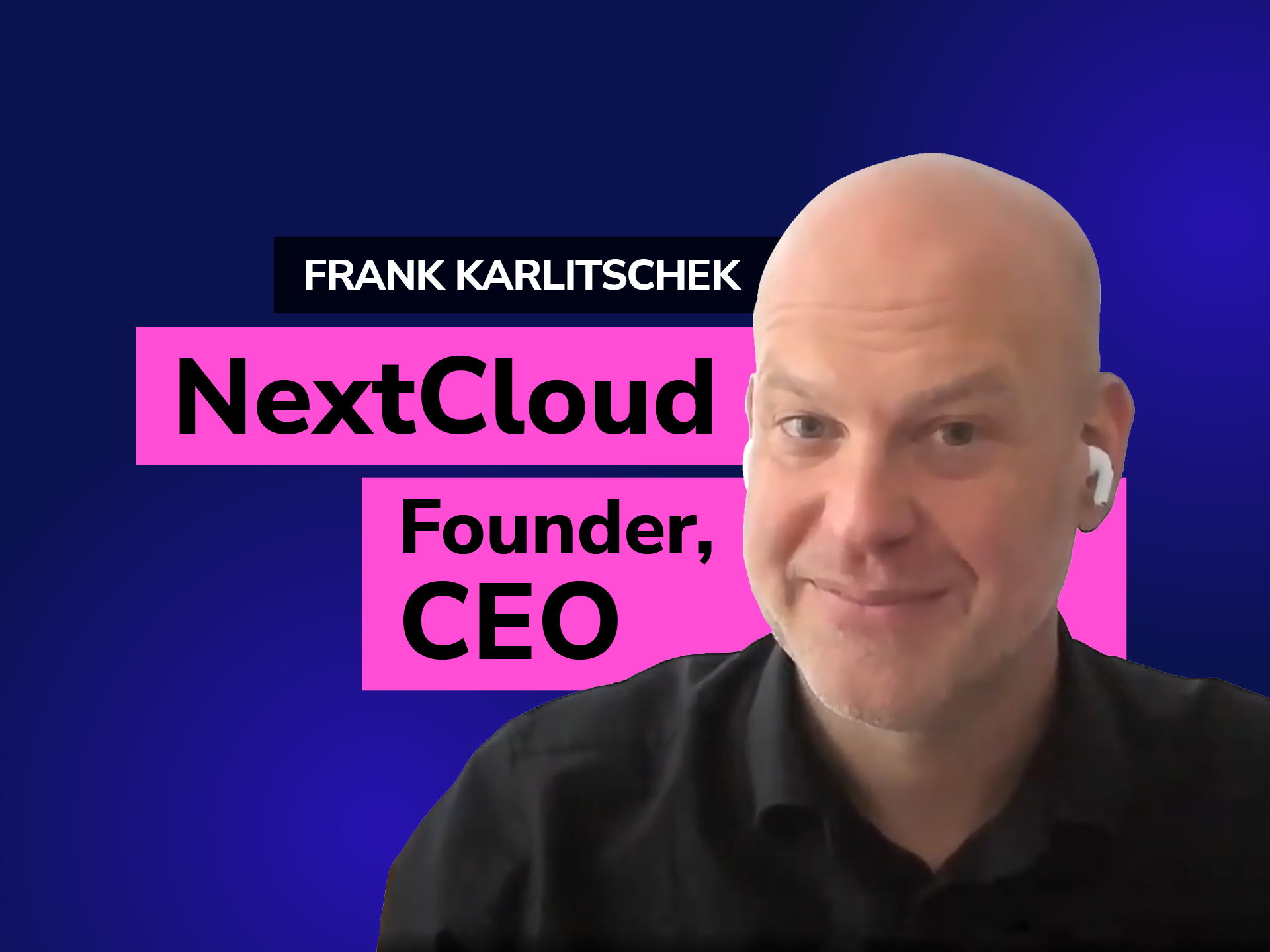Holistic sovereignty – sovereignty, open-source, and the data stack

In this episode , Vinay Joosery and Frank Karlitschek, CEO of Nextcloud, dive into the essence of digital sovereignty and the impact of cloud computing on data control. Frank shares insights from his extensive experience in open-source projects.
The conversation addresses the complexities of data sovereignty, touching on the legal tug-of-war between EU data protection laws and US jurisdiction. Frank provides a nuanced view on recent legal developments, including the invalidation of the Privacy Shield and the implications of new executive orders from the US government.
Vinay and Frank discuss the broader implications of digital sovereignty, emphasizing the importance of control over data and infrastructure. They explore the evolution of open-source from a niche concept to a cornerstone of digital autonomy, underscoring the need for true sovereignty in the era of cloud computing.
Key Insights
⚡The Realities of Multi-Cloud Strategies
Multi-cloud approaches are a double-edged sword. Frank discusses that, while aiming to blend the benefits of various cloud services, users may inadvertently multiply their risks instead. This insight challenges the common perception that more providers equal better security and efficiency. Frank suggests a need for a nuanced understanding of cloud services, where the goal should be to optimize benefits while minimizing potential vulnerabilities.
⚡Sovereignty in the Cloud Era
Vinay and Frank dive into the concept of digital sovereignty, particularly in the context of cloud computing. Frank emphasizes the importance of control over data and infrastructure. He reflects on the shift from local computing to cloud-based services, which has complicated the open-source model by placing user data in remote servers controlled by third parties. This shift has sparked a debate on true digital autonomy and the ability of individuals and organizations to maintain control in a cloud-dominated landscape.
⚡The Evolution of Open-Source and its Role in Sovereignty
Frank traces the evolution of open-source from a niche interest to a critical element of digital sovereignty. He notes that while open-source was once a hard sell to politicians due to its nebulous definition, it has now become synonymous with control and autonomy in the digital space. The discussion highlights how open-source has become a key player in the fight for digital sovereignty, offering an alternative to proprietary software and enabling users to retain control over their digital environments.
Episode Highlights
💡The Ambiguity of Data Flows and Sovereignty [00:18:30]
Vinay Joosery discusses the fluctuating landscape of data sovereignty, highlighting the uncertainty businesses face due to changing regulations. He points out that despite investments in sovereign cloud infrastructure, there’s skepticism about whether solutions from hyperscalers like Google and AWS truly offer sovereignty or if it’s merely “sovereignty washing.”
“I think the latter, it’s sovereignty washing…There are two big things that come to mind. The first is it doesn’t really solve the whole CLOUD act GDPR problem ss I mentioned at the beginning; because, the legislation in the US doesn’t really care where the data is located. It only cares if it’s operated and controlled by a US entity.”
💡The Illusion of Control in Proprietary Cloud Services [00:40:01]
The discussion touches on the illusion of control within proprietary cloud services. Vinay questions the possibility of claiming sovereignty without an open-source data layer. Frank responds by emphasizing the importance of being able to move applications and data across different vendors, highlighting the limitations imposed by proprietary components.
“If you want to move them around, if you want to switch from one vendor to another… and there is a proprietary component in your application… then this would be a problem.”
💡The Challenge of Multi-Cloud and Vendor Lock-In [00:19:59]
Vinay and Frank discuss the challenges of multi-cloud strategies and vendor lock-in, particularly the financial and technical barriers to achieving true sovereignty. They critique the practices of market leaders, such as egress fees and committed usage discounts, which complicate the free movement between cloud services and undermine the concept of a sovereign cloud environment.
“Having a multi-cloud type infrastructure… customers are getting charged quite a bit of money… These things make it even harder to get to a state where we can say this is a sovereign type environment.”



